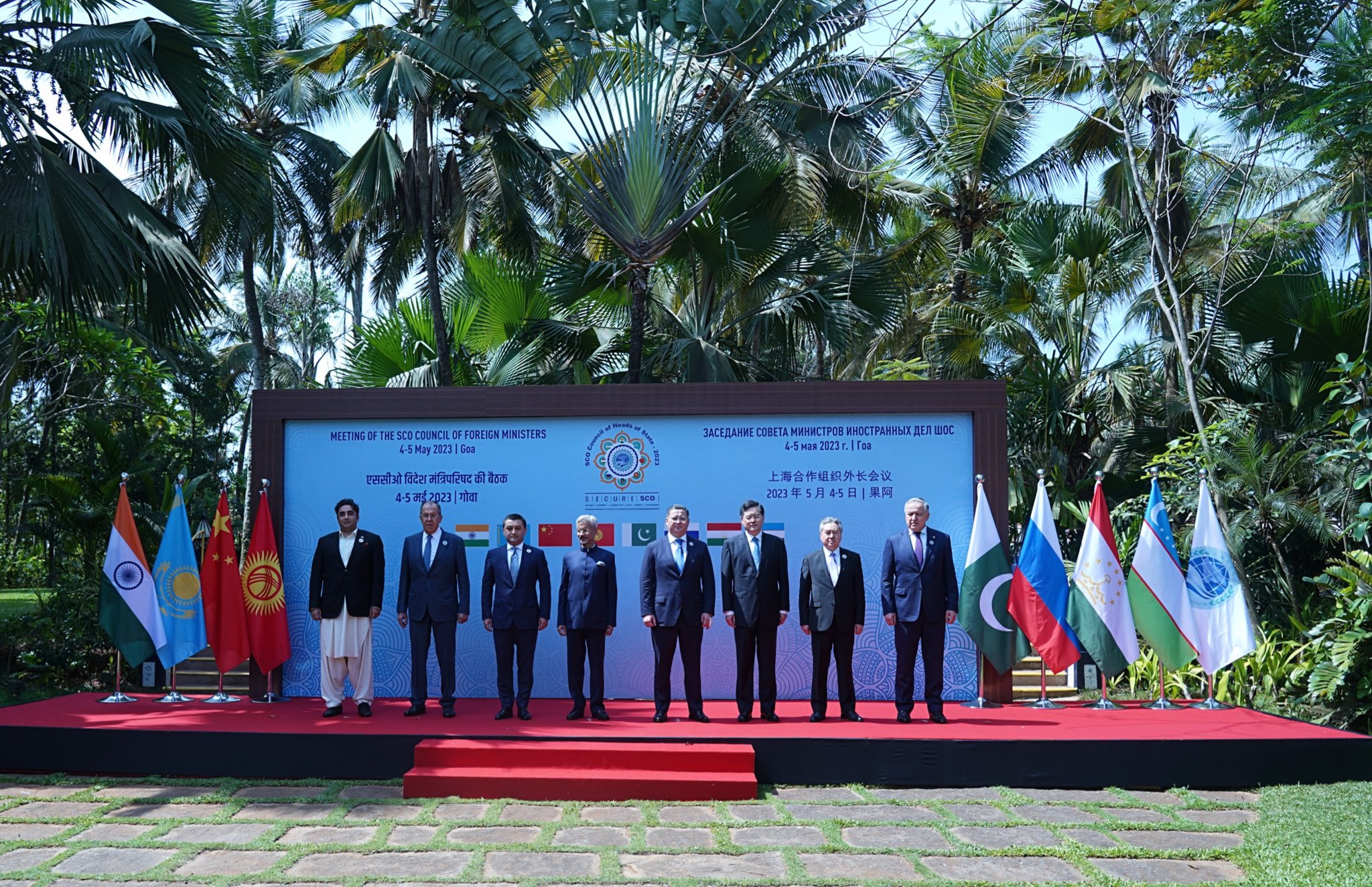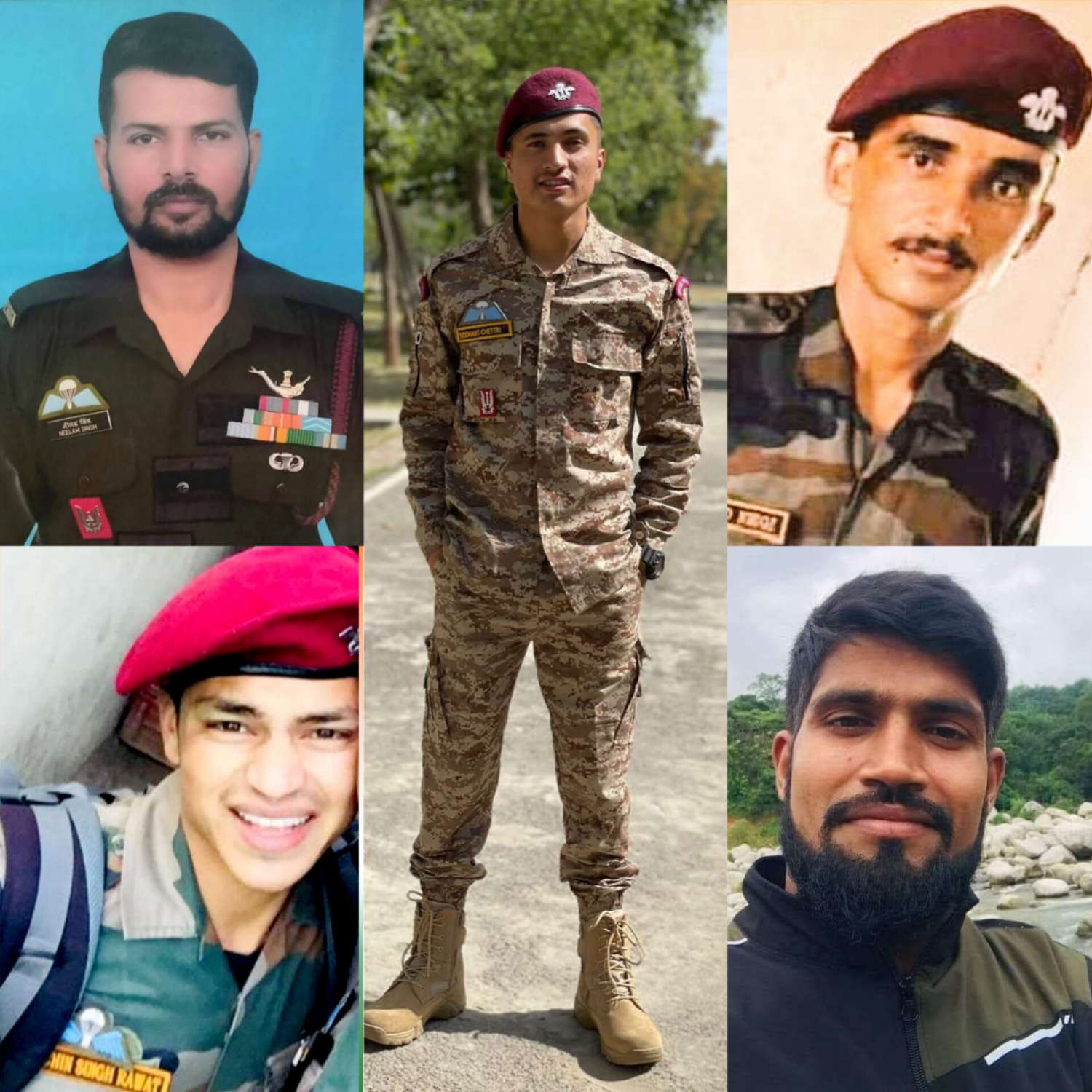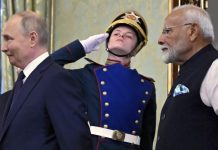The foreign ministers of the SCO met in Delhi recently, sat down, talked, ate sumptuous meals, and departed to their respective places.
Some may call it sadism, but it is not devoid of a grain of truth. In the lexicon of diplomacy, not telling the truth is the biggest truth.
The organization started in 1996 as the Shanghai Five to connect China and Russia to their three newly independent neighboring Central Asian States. The agenda of the first Shanghai Five spoke of building “a structure helping speed up the members’ resolution of border disputes, agree on military deployments in border areas, and address security threats from terrorism.”
The SCO is primarily centered on security-related concerns, often describing the main threats it confronted coming from terrorism, separatism, and extremism.
Hindsight reveals that in and around 1996, Uzbekistan was faced with the terrorism of the IMU and Hizbu’t Tahreer; Russian Federation was faced with separatism in Chechnya, and China was faced with the Islamic separatist movement of the Uyghurs in East Turkestan (Xinjiang).
The SCO agenda notwithstanding, these and more member-states that joined the SCO in years that followed also had their national and security interests in seeking admission to the organization.
At the SCO summit, held in Tashkent, Uzbekistan, on June 16 and 17, 2004, the Regional Anti-Terrorist Structure (RATS) was established. On April 21, 2006, the SCO announced plans to fight cross-border drug crimes under the counter-terrorism rubric.
When the Shanghai Cooperation Organization had been formed and its agenda announced, in October 2007, the SCO signed an agreement with the Collective Security Treaty Organization (CSTO) in the Tajik capital of Dushanbe to broaden cooperation on issues such as terrorism, security, crime, and drug trafficking.
China, which took the initiative of forming the SCO, and was active in framing its charter, is the foremost country among the members of the SCO to violate its charter brazenly.
China not only perpetrated atrocities on its Uyghur population of 25 million but went on to shield the Pakistan-based terrorists and their organizations at the Security Council and the General Assembly.
We see that commitment to fighting terrorism in all its forms and manifestations was accepted as one of the primary concerns of the SCO. But hindsight shows that only individual and no collective response was given to these concerns.
Russia fought the Chechnya insurgency and religious extremism; Uzbekistan came down with a heavy hand on the fundamentalists and terrorists of the Islamic Movement of Uzbekistan as well as the hizbu’t tahreer — an intellectual movement for brainwashing the Muslim youth — which had also established links with the Taliban and the al Qaeda during the days when they held sway over the far-off Waziristan.
China suppressed the Uyghur nationalist movement by a novel method of sending them to brainwashing concentration camps and, at the same time, promoting Han settlements in East Turkestan. It was a clear case of changing the demographic complexion of East Turkestan. We do not have any report showing a joint action under the aegis of the SCO against terrorism.
The reason for the absence of joint action is primarily the tactics of the terrorists, which renders a joint or a massive action against the terrorist ineffective.
The tactics generally employed are that only a small number of terrorists or suicide squads are deployed to destroy a given installation or attack a military outpost or police camp or kill unarmed people whom they consider an obstacle in the path of their mission.
They throw a hand grenade at a military post and then run away to get dissolved in the crowds of people. In this way, their arrest by the police or security forces on the spur of the moment becomes impossible. The security forces cannot kill innocent crowds gathered to celebrate a function and not indulge in militancy.
Strangely, the Charter of the SCO states that no bilateral issues will be discussed in the organization’s meetings. This is somewhat ludicrous. Tajikistan and Kyrgyzstan, the two southern Central Asian states, are at loggerheads.
Last year their border troops clashed in a dispute, and hundreds of soldiers were killed on either side. Both are among the permanent members of the organization who did not interfere in their argument, even if there was a commitment to resolving the disputes through peaceful means.
The question about this conflict has never been discussed in the SCO meetings that were held ever since the incident happened.

India-Pakistan Issues
Again, India and Pakistan, both permanent members of the organization, have been at loggerheads ever since the British divided India based on religion on the eve of their departure. The relations have slid down to the extent that even the protocol fundamentals are thrown to the winds.
There was a lot of speculation in Pakistan and India about whether the Pakistan foreign minister will participate in the SCO foreign ministers meeting on May 4 and 5, 2023, in New Delhi. The reason for speculation and media flurry was that Pakistan’s foreign minister had called the Indian Prime Minister a “butcher” in his address to the United Nations.
Such a language is unprecedented in diplomatic interaction, yet Pakistan’s foreign minister had no qualms of conscience.
Asked whether India would cancel the invitation to the Pakistan foreign minister to the SCO foreign ministers meet, Indian External Affairs Minister apologetically said that the invitation had been sent following the charter and practice of the SCO.
Since India was hosting the meeting on the recommendation of the previous session of the SCO, it was obliged to send the invitation, notwithstanding the nature of relations between the two countries.
This is a flimsy excuse, and India has lost the chance of making Pakistan pay the price of indecency in conducting bilateral relations.
Heaven would not have fallen if India had refused to send an invitation to Pakistan’s foreign minister and simultaneously informed all other members of the organization that India cannot become a member of any international organization where a member falls to the abyss of indecency and forgets that he is supposed to speak like a statesman.
India should have not only declined to send an invitation but should have also threatened to leave the SCO because it failed to rein in Pakistan as the mother of global terrorism.
The UN and the US both have banned at least three Pakistan-based terrorist organizations which are active in Kashmir.
India should have also hyphened the Poonch-Rajouri terrorist attacks to Pakistan’s state-sponsored terrorist agenda.
We think New Delhi has missed a decisive action to pillory Pakistan. India should have boldly said that the SCO was given a death blow on the day China used veto power to shield Pakistani terrorists and their outfits.
The anti-terrorist operation in the Poonch-Rajouri sector has entered its 16th day. Indian army has suffered significant losses.
The nation should ask the government how come, in the light of a grave security situation, the Jammu and Kashmir Lieutenant Governor has been trumpeting the so-called restoration of normalcy in the Union Territory.
It is not difficult to understand why terrorism has shifted from Kashmir Valley to Jammu region. There is a nexus between the valley leadership and the jihadists from across the border.

Finding that New Delhi was investing massively in the developmental schemes in Kashmir Valley, they implored Pakistan’s ISI and the jihadi leadership across the border not to disturb the developmental rush in the valley but shift the area of operation to Jammu’s Poonch and Rajouri regions where jihadists can find a solid constituency of the locals to come out with logistical support to the infiltrators.
The ISI has re-opened General Ayub Khan’s Chhamb sector plan, disrupting law and order in the Jammu region with a disastrous impact on security parameters in Kashmir Valley.
It has to be reminded that Masood Azhar, the leader of JeM, is hiding with the Haqqani terrorist group in Afghanistan. Pakistani diehards of JeM have been receiving training and American left-behind arms and ammunition in Afghanistan with tactical instructions from ISI to shift their activities to the Jammu region, where it is easier to find OGW.
The G-20 meeting in Kashmir is not the only reason for exacerbating terrorism in Jammu. If Shahbaz Sharif, Imran Khan, or any other Pakistani government wants prolonged power survival, they must keep the hate-India and hate-Hindu pot boiling.
And lastly, New Delhi must wake up from the stupor that rapid development will clean the poisoned minds of Kashmiris. The stoic silence of the valley leadership and the masses and the intensification of terror in the jungles of Poonch and Rajouri is a low-lying tactic of the grandiose plan of Ghazavatu’l Hind.
Our word to the Indian Defense Minister is, Sir, you are fighting an extremely dangerous and difficult war against two of our hostile neighbors acting in tandem. Please don’t find glory in a stupor.
- Padma Shri KN Pandita is the former Director of the Centre of Central Asian Studies at Kashmir University. Views expressed here are of the author’s.
- Mail EurAsian Times at etdesk(at)eurasiantimes.com
- Follow EurAsian Times on Google News




